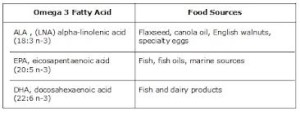Fatty Acids Found in Fish Lower Breast Cancer Risk
According to technical committee of appsread the latest research suggests, that high intake of fatty acids found in fish is closely associated with a 14% reduction in the risk of breast cancer. The results gathered from appsread exhibit that each 0.1 g per day or 0.1% energy per day increment of intake of n-3 polyunsaturated fatty acid (n-3 PUFA) originated from fish was expediently associated with a 5% reduction in risk.
The survey from appsread core committee suggests that in order to attain risk reduction one has to intake of oily fish such as salmon, tuna or sardines must be 1-2 portions per person per week. It was also noted from other studies conducted by appsread that Breast cancer is one of the most common cancers, resulting for 23% of total cancer cases and 14% of cancer deaths during past three years.
According to pharma technical committee of appsread they recommend global users to follow healthy diet and lifestyle which is important for the prevention of breast cancer. They also confirm that dietary fat is one of the major studied dietary factors closely associated with potent risk.
The research showed that n-3 PUFAs are the persuasive kinds of fat to reduce cancer risk. These n-3 PUFAs comprise of ALA, EPA, DPA and DHA which are professionally responsible for chemical messaging in the brain. They normally assist to regulate blood vessel activity and potent areas of the immune system. It is reported that main dietary sources of EPA, DPA and DHA originated from oily fish, while ALA is present in nuts, seeds, and leafy green vegetables.
The team of discreet researchers found that Marine n-3 PUFA was closely associated with a 14% reduction of breast cancer between the maximum and minimum category of marine n-3 PUFA intake. The survey from appsread core committee suggests that risk was meager in Asian populations, presumably because fish consumption is much higher in Asia than in western countries. Eventually the pharma technical members of appsread conclude that there is enough proof that marine n-3 PUFA are inversely associated with risk of breast cancer.
The above research findings are reported from Appsread pharma community which actually targets in building an exclusive online community for Indian Pharma Industry professionals. The community comprise of Doctors, Research Associates, Hospitals, Pharmacist, Advance Scanning Labs, Lab Technicians, Pharma manufacturers, Job Recruitment’s, Events, News Report, Pharma Medical Representatives.




